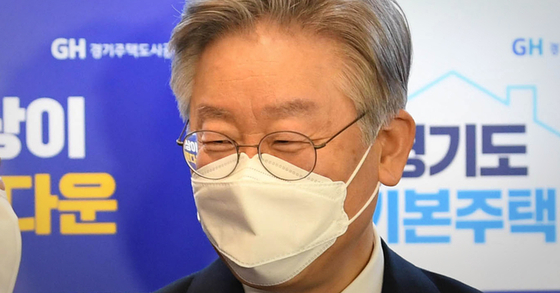
Jae-myung Lee, Governor of Gyeonggi Province. News 1
Gyeonggi Governor Lee Jae-myeong maintained a solid leading position in the next presidential candidate’s suitability survey.
The National Barometer Survey (NBS) in the 4th week of February was conducted by four public opinion survey companies, including Embrain Public, Casestat Research, Korea Research, and Korea Research, on 1,07 men and women aged 18 and over nationwide from 22 to 24. The results came out on the 25th.
Presidential Election Aptitude Lee Jae-myeong 1st Lecture System
Governor Jae-myung Lee (28%), Nak-Yeon Lee (11%), and President Yoon (7%) in the fit of the next presidential election.
In last week’s survey, Governor Jae-myung Lee (27%), Nak-Yeon Lee (12%), and President Yoon (8%).
The percentage of’No’ or’I don’t know’ and non-response was 36%, and there were still many unaffected people who could not decide their attitude.
In addition, among the supporters of the Democratic Party, Governor Jae-myeong Lee recorded 49% and Nak-yeon Lee, 23%. Among the supporters of the people’s strength, 24% were President Yoon and 13% were independent lawmakers Hong Jun-pyo.
Presidential evaluation of state administration
As for the evaluation of the presidential administration, 47% were positive and 44% were negative. Compared to the previous week, the positive evaluation rose 5 percentage points.
As for the political party leadership, the Democratic Party (35%), the People’s Strength (20%), the Justice Party (5%), and the People’s Party (4%). The unaffected class who withheld their attitude reached 32%.
By-election “Influences Next Year’s Presidential Election”
56% said they were interested in the by-election and 43% said they were not interested.
Regarding the impact of the Seoul-Busan mayoral by-election on the presidential election next year, 77% of respondents answered’will have an effect’, much higher than that of’will not affect’ (18%).
The survey was conducted in a wireless telephone interview method (100%) through random extraction of virtual numbers provided by domestic telecommunication companies. The response rate is 30.1% and the sample error is ±3.1%p at the 95% confidence level. For detailed survey summary and results, refer to the website of the Central Election Survey Deliberation Committee.
Reporter Lee Hae-jun [email protected]
![]()
